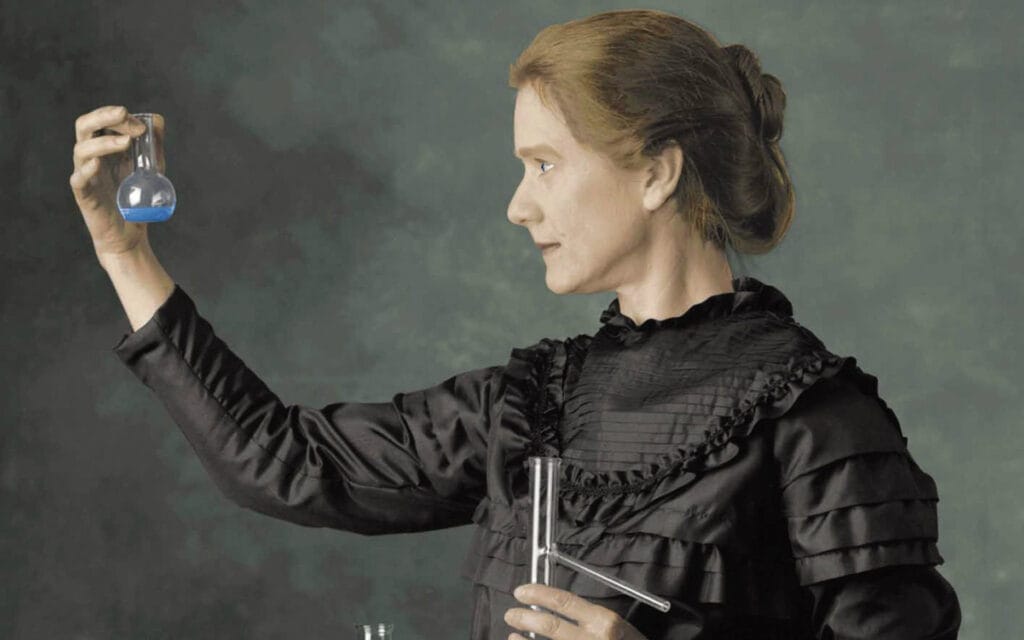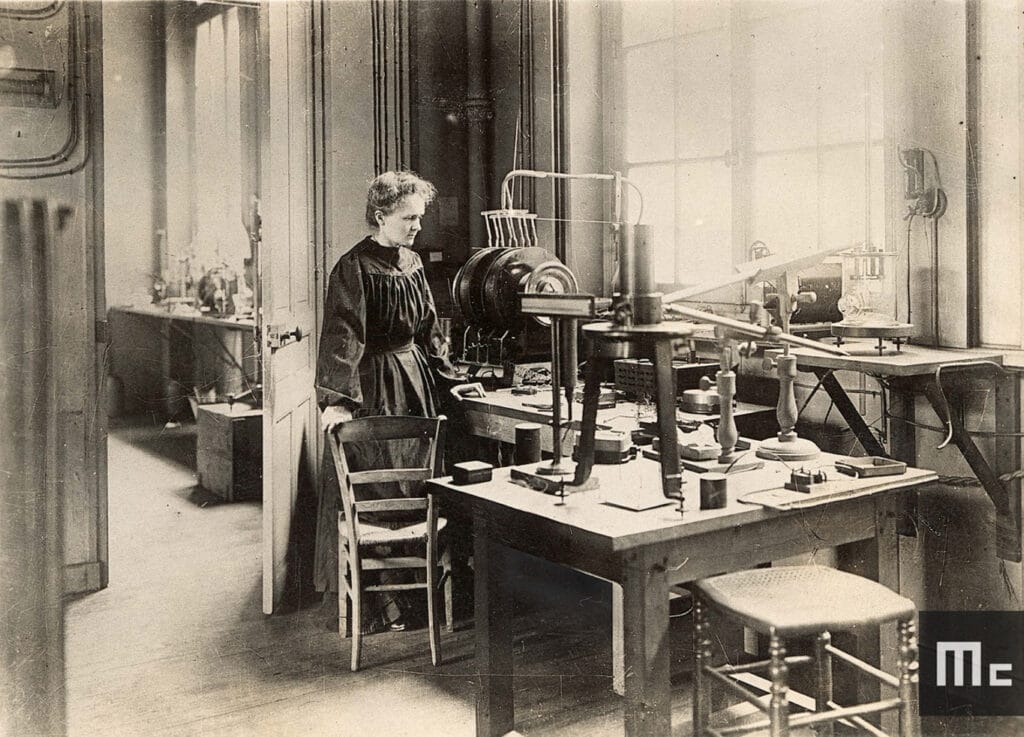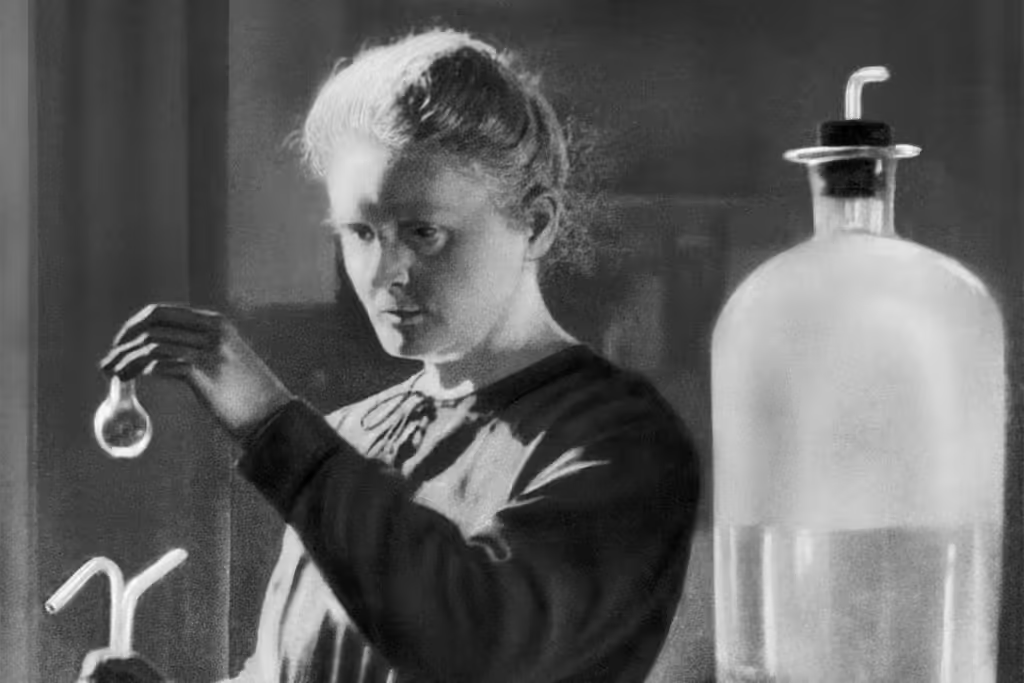Marie Curie is remembered as a pioneering scientist whose relentless pursuit of knowledge in physics and chemistry reshaped the scientific landscape and challenged the societal norms of her time. Her life and work embody a quiet yet powerful feminism, rooted not in overt declarations but in resolute action, defying the limitations imposed on her by gender in a male-dominated field. Curie’s achievements—her discovery of radioactivity, her contributions to medical science, and her groundbreaking research in nuclear physics—not only advanced humanity’s understanding of the natural world but also elevated the status of women in science, creating a legacy of empowerment for generations to follow.

Breaking Boundaries in a Male-Dominated World
Born Maria Skłodowska in Warsaw in 1867, Curie faced a society that viewed women as inherently limited in intellectual capacity, reserving higher education and scientific research for men. Despite these challenges, she demonstrated from an early age an exceptional aptitude for learning and a commitment to advancing her education. Poland’s universities were closed to women, so Curie joined the “Flying University,” a clandestine institution that allowed women to study in defiance of Russian authorities. Her move to Paris in 1891 to study at the Sorbonne was a radical step, driven by her unyielding ambition to pursue scientific studies at the highest level—a journey on which few women had dared to embark.
Curie’s path to scientific renown was not only arduous but also isolated. As one of the only women in her field, she had to continuously prove herself against doubting peers and institutions. Working under conditions that would later be recognized as hazardous, she and her husband, Pierre Curie, made historic discoveries. Curie isolated two elements—polonium and radium—demonstrating the previously unknown phenomenon of radioactivity. Her research on the nature of radioactive materials laid the groundwork for significant advances in medical treatment, particularly in cancer therapy. However, despite her unparalleled contributions, Curie faced resistance from the academic establishment, which was hesitant to recognize a woman’s success.
The Feminist Undercurrent of Curie’s Work

Curie’s achievements can be understood as inherently feminist, though she seldom spoke on the matter directly. Her work wasn’t an overt crusade for women’s rights but rather a persistent assertion that her gender should not hinder her scientific potential. In a society where even the most educated and progressive men often doubted women’s intellectual capabilities, Curie’s successes sent a resounding message. She showed the world that women could engage in rigorous scientific inquiry and produce world-changing results.
Her commitment to merit over privilege was revolutionary. In an era when women’s contributions were frequently overlooked, Curie insisted on fair recognition. This quiet insistence on acknowledgment—illustrated when she became the first woman to win a Nobel Prize in 1903 and the only person to win Nobel Prizes in two different sciences (physics and chemistry)—challenged a system that traditionally relegated women to subordinate roles.
Marie Curie’s Impact on Science and Society
Curie’s scientific breakthroughs were accompanied by social milestones that redefined what women could achieve. Her legacy includes the founding of the Radium Institute in Paris, which became an epicenter for scientific research and a rare place where women scientists could work as equals. Curie trained and mentored a new generation of female scientists, providing a springboard for women to enter fields that had previously been inaccessible to them. Through her mentorship, she instilled a sense of purpose and self-worth in women scientists that inspired them to strive for excellence, regardless of societal restrictions.

Curie’s work also laid the foundation for the use of radiation in medicine, particularly in the treatment of cancer. By emphasizing practical applications of her discoveries, she demonstrated that women’s work in science could produce tangible benefits for society. This was particularly significant in a world that often trivialized women’s intellectual contributions as less relevant to “real-world” applications. Curie not only demonstrated the intellectual rigor of her work but also its capacity to improve human life—a powerful counterargument to those who sought to minimize women’s contributions to science.
Curie’s Legacy and the Evolution of Women in Science
The doors Curie forced open enabled future generations of women scientists to pursue their passions without the same degree of resistance. Her life became a symbol of what women could accomplish in science, sparking movements for gender equality in academia and beyond. Today, organizations dedicated to supporting women in STEM (Science, Technology, Engineering, and Mathematics) fields trace their roots to the barriers Curie overcame.
While modern feminism has evolved significantly since Curie’s time, her legacy resonates in contemporary struggles for gender equality in science and beyond. Initiatives like the Marie Curie Fellowships encourage young women to enter scientific fields, bearing her name as a testament to her belief in women’s potential to make groundbreaking contributions to knowledge. Though Curie rarely addressed feminist issues directly, her determination and achievements serve as a blueprint for feminist action: progress through persistence, excellence, and dedication to a larger purpose.

Marie Curie’s Quiet Revolution: Feminism by Action, Not Words
Marie Curie’s feminism was unspoken, embedded in her commitment to her work and her insistence on being treated as an equal. She defied the gender norms of her time not by engaging in overt political activism, but by excelling in her field to a degree that could not be ignored. In this way, Curie redefined what it meant to be a woman in science and set a standard that extended far beyond her own achievements.
The impact of Curie’s life and work transcends her scientific discoveries. Her career demonstrated that a woman could pursue and attain the highest levels of knowledge and innovation, compelling society to reevaluate its assumptions about gender and intellectual capacity. In her quiet, determined way, Marie Curie fought for a more inclusive and egalitarian scientific community—a legacy of empowerment that continues to inspire women around the world to push past boundaries and pursue their passions with confidence.




